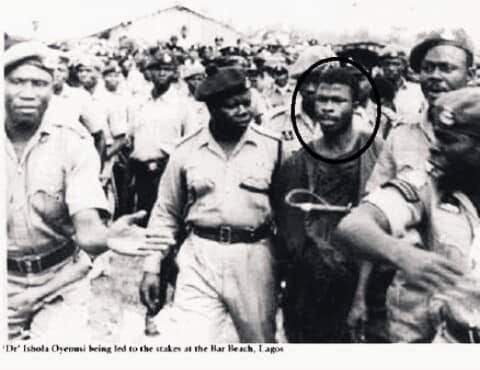
History! Carlota Lucumi: The Yoruba woman who led one of Cuba's Revolts in 1855
That Later inspired Fidel Castro
Thread! Retweet and Comment!
When she was 10, she was kidnapped from her home
Nairaland go verify Ruger obi cubana Kelly burna wizkid hijab Vado iphone 13 #unilag


That Later inspired Fidel Castro
Thread! Retweet and Comment!
When she was 10, she was kidnapped from her home
Nairaland go verify Ruger obi cubana Kelly burna wizkid hijab Vado iphone 13 #unilag



Carlota Lukumi was a Yoruba woman born in the Kingdom of Benin. When she was 10-years-old, she was kidnapped from her home, and, according to Face2Face Africa, sold into slavery to work on the sugar and cotton plantations in Cuba. Carlota got the name “Lucumi” from the feared
Afro-Brazilians of Yoruba descent, who were infamous for rebelling against their masters. Carlota earned that nickname as the infamous, machete-wielding leader of a slave rebellion on the Carribean island in November 1843.
Despite the global shift towards abolition in the 1800s, Cuban slavery remained on the rise because plantations contributed to seek an increase in production. The growing number of enslaved Africans lead to the building and consolidation of a community,
and to a shared personhood that launched a wave Cuban slave revolts throughout the 1800s. Many revolts ended in the killing of their leaders but each left the white slave owners more shaken than the last, building momentum for the enslaved community.
Carlota broke through the male-dominated legacy of rebel leaders to place herself firmly in history by orchestrating a slave uprising on November 5th, 1843. After months of secret planning and organizing, Carlota and a group of fellow enslaved Africans rose up and toppled
Julian Luis Alfonso Sole, Mayor of Matanzas and owner of the local sugar mill. The rebel group was made up of enslaved Africans working on the Triunvirato sugar plantation and surrounding plantations. Carlota and the rebels started by setting houses on fire, specifically those
used to jail and torture slaves. The movement spread to five plantations as more enslaved Africans took the Lukumi’s lead, rising up and killing as many white enslavers as they could see.
Local lore tells the story of Carlota celebrating the killing of María de Regla,
Local lore tells the story of Carlota celebrating the killing of María de Regla,
the daughter of an overseer. As we come across more narratives that reveal how white women were just as invested in slavery, one can surmise that de Regla had likely treated Carlota in a way that would give a sense of justice being served. Carlota was killed on November 6th
but her legacy did not die. The news of her death sparked further uprisings in hopes of completing the mission to free enslaved Africans.
It was the largest revolt ever orchestrated against slave owners in Cuba, and though it was not successful, it instilled a permanent
It was the largest revolt ever orchestrated against slave owners in Cuba, and though it was not successful, it instilled a permanent
fear in the island’s white community. It also left a historical precedent. According to IBW21, Fidel Castro’s ideas of the oppressed rising up against their oppressors was greatly influenced by Lucumi.
Carlota was one of the earliest freedom fighters known in Cuban lore and she was an African woman.
Source: Afropunk - ZamaMdoda
Follow @Yorubaness and Retweet 🤝
Source: Afropunk - ZamaMdoda
Follow @Yorubaness and Retweet 🤝
Download PDF Version "The Aphrodisiac and Herbal Recipe book" Order here: selar.co/qadi
We need 1000 subscribers on YouTube, Kindly subscribe to our YouTube channel ✨
This will enable us broadcast Live, whenever we go on Historical tours
youtube.com/channel/UC6sP7…
This will enable us broadcast Live, whenever we go on Historical tours
youtube.com/channel/UC6sP7…
• • •
Missing some Tweet in this thread? You can try to
force a refresh















